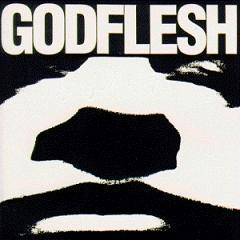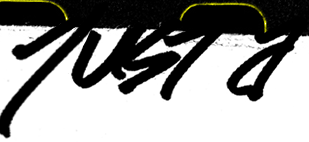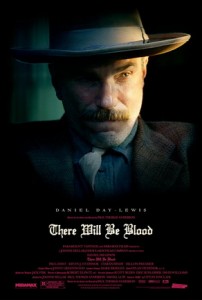In anticipation of seeing Godflesh, one of the most intensely moving bands I’ve ever experienced, this coming October in NYC, I will be reviewing their entire discography from start to finish (or rather what is turning out to be merely a significant hiatus). For the uninitiated, a quick primer on this singular musical entity…
Godflesh is the brain-child of Justin Karl Broadrick (ne JK Broadrick – guitar, vocals, programming) and Ben George Christian Green (ne GC Green – bass). In 1982 Green formed, along with Paul Neville, Fall of Because, a primitive industrial-metal band which actually wrote some of the basic forms of songs which would become early Godflesh numbers. The two asked Broadrick (who was playing a minor role in Napalm Death) to play drums and contribute vocals to the project. Fall of Because ended in 1986/7. Broadrick was no longer playing in Napalm Death at that time, but was in a noise rock band called Head of David. After departing from that project, he reached out to Green to reform FoB in 1988. That reformation would lead to the creation of Godflesh, in which Broadrick took over guitars, incorporated the use of a drum machine, and became the main creative driving force. Paul Neville would remain a close contributor to Godflesh in the early years. The band’s fusion of doom/stoner metal (Black Sabbath, St. Vitus, Candlemass), industrial/power electronics (Throbbing Gristle, Whitehouse, Lou Reed’s Metal Machine Music), and the ambient cinematic works of people like Brian Eno or John Cage, has been often lauded as a significant influence on extreme/heavy music in it’s wake.
The band’s first release is actually one of their most intricate and impressive from virtually every standpoint. In my opinion, this is the best place for anyone to start when getting into Godflesh. Later albums would veer into isolated territories of style, but this one remains an entire united nation’s worth of sound – everything coalesces together into one monolithic entity that defines the band. It also is their closest to sounding like a normal heavy metal band. The drum machine, while certainly sounding artificial, is treated, for the most part, like a digital drummer and the electronic noise is oftentimes almost indistinguishable from Justin’s guitar work (although there are plenty of chunky riffs to satiate those who crave that organic, Sabbath-y sludge). The opening hyper-speed drum hits into sloth-paced riffing is immediately unforgettable and the ensuing track, Avalanche Master Song, ranks as one of the band’s best and most beloved by fans. Here, the band sounds like the aforementioned Black Sabbath practicing in the factory Tony Iommi lost part of a finger in. Other standout tracks are Weak Flesh, one of the band’s more aggressive/punker sounding numbers, and Ice Nerveshatter whose title is equally brilliant and obtuse and offers a crescendo rarely equaled in the band’s catalog.
At this point, lyrically, Justin is focusing almost entirely on what would become a continuing theme, albeit only one aspect of many, throughout the band’s releases; revelation through pain. This is the most recognizable on Ice Nerveshatter which begins with “Ascend faceless/Naked, I am yours” and ends with “I needed this, you watch me/I bleed to death, watch me” – the recognition of the importance and inevitability of suffering, but also of the growth and realizations which come from the same things which create suffering in life. Zen in the dirt. He focuses on singular phrases, not detailed narratives to issue his points, as clearly identified on Veins “On my knees for you/Truth is always pain”. For the most part, the lyrics serve to add atmosphere to the music and allow the listener to deepen the experience, opening one’s mind to exploring trains of thought, previously pursued or not. The only track which bears a mark of his hardcore punk roots is Avalanche Master Song, whose full lyrics are highly intelligible, direct, and blatant in their subject matter:
You’re proud of being poor
Nothing changes nothing
You eat your skin
As if your soul never existed
Screw you and your world
Perpetually cut with lies
I could stand the pain
For long enough
But the taste is just
Too bitter
The Earache reissue features two bonus tracks which are remixes of the songs Wound (Tiny Tears EP) and Streetcleaner. Neither is anything particularly essential or moving. Like many of Justin’s remixes, I find them interesting and enjoyable to listen to here or there, but nothing of any real consequence. More like exercises in experimentation; not to be ingested for sustenance, but amuse bouche for the artist within us all, of however small ambition. The cover is an image taken from the beginning of the 1966 science-fiction film Seconds, directed by John Frankenheimer and starring Rock Hudson. Oddly, the same images were used in the title sequence of the 1991 remake of Cape Fear by Martin Scorcese (which the band would later wind up seeing, in the theater, together). While often cited as being “lo-fi” or having very basic/poor production qualities, I find the sound quality and overall recording/mixing to be basically perfect. Many later Godflesh releases have annoying mixing issues, for me at least, but here everything seems to be right there for you to hear cleanly, but still sounding like rusty metal being torn apart in a junkyard. Perfect.






